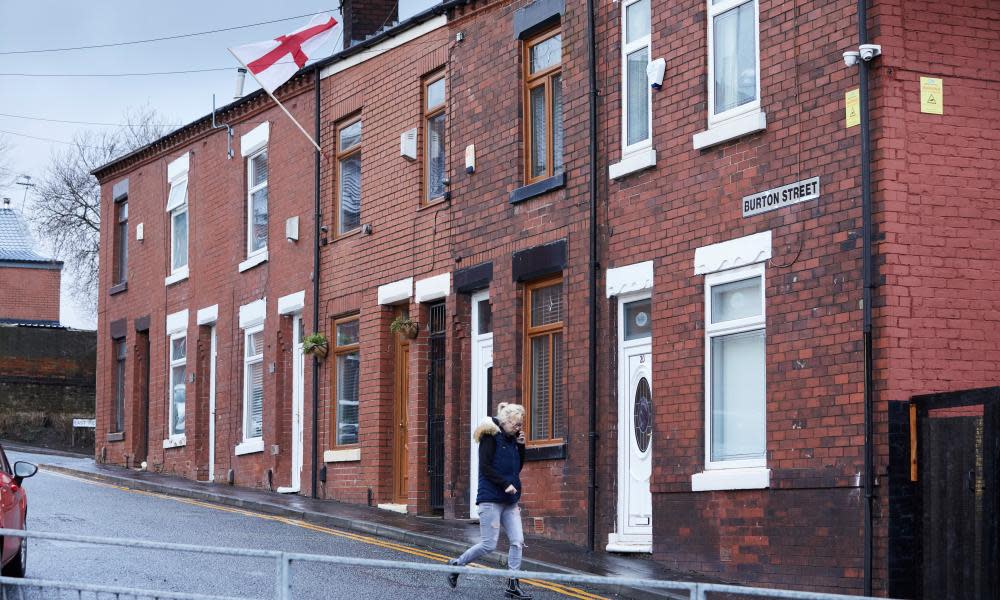How deprivation in the north has led to a health crisis

Like many areas of the north of England, residents of the Greater Manchester constituency of Heywood and Middleton – one of the so-called “red wall” seats that turned Tory for the first time at the general election – suffer poorer than average health.
According to data from the House of Commons library, rates of some of the most common health conditions are higher in Heywood and Middleton than the rest of the country. Some 15.5% of the local population have been diagnosed with depression compared with an England average of 9.8%; 11.8% of adults are obese (England: 9.7%); 7.7% have diabetes (England: 6.7%); 14.7% have high blood pressure (England: 13.8%) and 2.8% have one of the progressive lung diseases known as chronic obstructive pulmonary disease (COPD) (England: 1.9%).
Painter and decorator Alexander Muresan has a lung condition and COPD. The 46-year-old lives in Middleton, a town in the south of the constituency, and needs regular medical attention. “I think people here always think they are overlooked in comparison to the south. People think London comes first and we get the trickle after. At most doctors you feel like they want you in and out the door.”
More than a quarter of adults (26.5%) in Rochdale, the local authority area, are classed as “physically inactive”, compared with the England average of 22.2%. Poor public transport means most people drive rather than use public transport: most of the constituency is nowhere near a tram or train stop and buses are slow and expensive. Middleton lost its railway station in the 1960s and despite being just six miles from central Manchester now feels a bit isolated.
Deprivation plays a big role in ill-heath: 21% of Heywood and Middleton is classed as “highly deprived”, compared with 0% of Boris Johnson’s constituency of Uxbridge and South Ruislip. At Middleton’s shopping centre, the Lighthouse Project community hub operates a busy food bank as well as the Pantry club, where members pay £3.50 a week for ten food items worth around £15, plus a selection of fresh fruit and veg.
Margaret White, 65, volunteers there and says many in the area have fallen on hard times. “This used to be a prosperous place with lots of manufacturing and now lots of those jobs have now gone. People now, if they want a good job, have to go into Manchester. This has led to more unemployment. Poor transport as well, a lot of people can’t get to the jobs, we have poor transport links, particularly the bus services are bad, which makes people deprived,” she says.
Life expectancy in the north has increased far slower than in the south. Between 1991 and 1993, men in Rochdale were expected to live on average to 71.4 – not too dissimilar from in Kensington and Chelsea in London, where male life expectancy then was 73. Now, the average man in the London borough will now live to 83.3 while his Rochdale counterpart will die at 77.2.
Muresan was surprised to hear the statistics. “You’d think it’d be the opposite, with more pollution in London you’d think they’d have the lower life expectancy. I’ve been to London a few times and everyone is always running and no one looks like they have a minute to spare and up here, up north, is a bit more laid back,” he says.
Aisha Connor, 48, a care assistant, says she thinks healthcare needs better funding locally. “A lot of our patients don’t get the drugs they need because they cost too much money so they just leave them. It’s disgusting,” she says. “I don’t think people in Middleton care much about their health … until there’s something wrong with them.”

 Yahoo News
Yahoo News 
